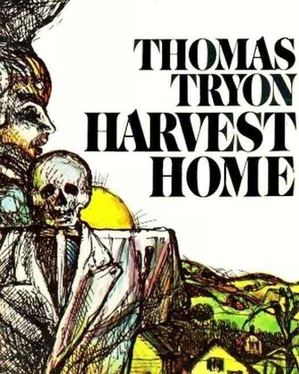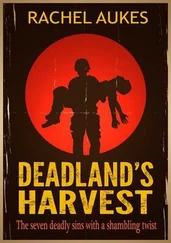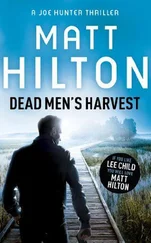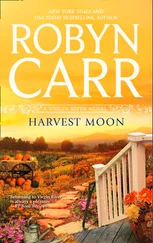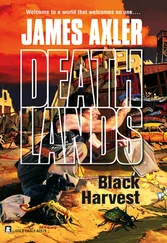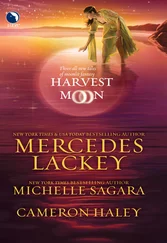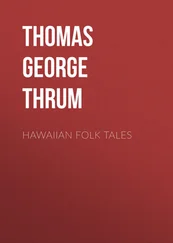Thomas Tryon - Harvest Home
Здесь есть возможность читать онлайн «Thomas Tryon - Harvest Home» весь текст электронной книги совершенно бесплатно (целиком полную версию без сокращений). В некоторых случаях можно слушать аудио, скачать через торрент в формате fb2 и присутствует краткое содержание. Жанр: Ужасы и Мистика, на английском языке. Описание произведения, (предисловие) а так же отзывы посетителей доступны на портале библиотеки ЛибКат.
- Название:Harvest Home
- Автор:
- Жанр:
- Год:неизвестен
- ISBN:нет данных
- Рейтинг книги:5 / 5. Голосов: 1
-
Избранное:Добавить в избранное
- Отзывы:
-
Ваша оценка:
- 100
- 1
- 2
- 3
- 4
- 5
Harvest Home: краткое содержание, описание и аннотация
Предлагаем к чтению аннотацию, описание, краткое содержание или предисловие (зависит от того, что написал сам автор книги «Harvest Home»). Если вы не нашли необходимую информацию о книге — напишите в комментариях, мы постараемся отыскать её.
For Ned and his family, Cornwall Coombe was to be come a place of ultimate horror.
Harvest Home — читать онлайн бесплатно полную книгу (весь текст) целиком
Ниже представлен текст книги, разбитый по страницам. Система сохранения места последней прочитанной страницы, позволяет с удобством читать онлайн бесплатно книгу «Harvest Home», без необходимости каждый раз заново искать на чём Вы остановились. Поставьте закладку, и сможете в любой момент перейти на страницу, на которой закончили чтение.
Интервал:
Закладка:
There was, however, Mrs. Dodd suggested, a good place over in Ledyardtown, the Greenfarms School, which had a fine reputation. Many parents in the neighboring towns who desired better education for their children sent them there. No bus, though; Beth would have to drive. Car pool? No, none of the village children attended Greenfarms. If we cared to, Mrs. Dodd would take us over after lunch. I asked Mr. Dodd if we would encounter difficulty finding workmen to do the renovation; he mentioned a Bill Johnson, who lived out on the turnpike, and said this man could probably give us a more than satisfactory job. Mrs. Dodd offered a bite of lunch with them, but we declined tactfully. She suggested the Yankee Clipper, also out on the turnpike, or if something light would do, there was the Rocking Horse Tavern in the village. We chose the latter, finished our drinks, and when Mrs. Dodd brought her husband’s lunch on a tray, with the food carefully cut up for him, we left, asking if we might have a few hours to discuss the situation. Mr. Dodd said to take all the time we needed, the house would still be there.
Crossing the lawn, I heard again the voice reading from a book: “Mi s s Havisham often asked me in a whisper, or when we were alone, ‘Does she grow prettier and prettier, Pip?’” I recognized Great Expectations, and thought of our own.
We parked beside the Common, then paused to admire the wooden rocking horse over the doorway of the tavern, a polychromed figure with gilded mane and tail. Inside, the air was thick with pipe smoke and talk of corn among the farmers gathered around the bar; several eyed us with curiosity as we found a table in the back and ordered beers and steak sandwiches, and began exchanging ideas about the house. Beth laughed when I told her about having misunderstood Mrs. Dodd’s comment about the bacchante room, and said it cried for mulberry walls, and could we have a hunter-green sofa? She remembered there was a Victorian sideboard in storage we could hide the TV in.
Some others came in, an older man and five younger ones, and they also were stared at as they heaved past the bar with heavy-booted tread and took a table in the corner. While the men at the bar talked corn, these talked tobacco, a burly, almost ruffian-looking gang, obviously a family. The older one, an angry, bristly man, we decided must be the father.
After lunch, as we waited for Mrs. Dodd, we stood outside the tavern and had a look around the Common. This large central area of the village was more than an eighth of a mile long, oval in shape, encircled by a road which began at the north end where Main Street left off. On the west side were a Grange hall, a firehouse, and a grocery; then the post office, an ancient squat, oddly shaped building of wood and stone, with a large, lopsided chimney. Next door was the Gwydeon Penrose House, then the drugstore, a barbershop, and more houses. Our side began with the tavern; next to it a building apparently combining the facilities of town hall and library; another ancient clapboarded dwelling, now converted into a bank, with Ye Beauty Shoppe upstairs; more houses; and the church, directly opposite the post office.
People were taking their Sunday ease along the walks, looking in the shop windows or forming little knots of conversation, while their offspring played on the Common where the sheep bleated as dogs without leashes ran among them.
What cars were parked along the curbing seemed of Eisenhower vintage, their wheels and fenders still muddy from the winter. A wagon creaked by, a stolid farmer holding the reins. He pulled up, got down, and went into the tavern we had just quit, sliding a look at us as he passed. I thought how wonderful to hear horses’ hoofs, the sort of sound one expected in such a place.
Taking Beth’s arm, I walked with her in the direction of the church. An old man sat on the top step near the vestibule doorway, his chair tilted back, his lap filled with knitting as his gnarled hands plied large wooden needles. He, too, was observing us. I felt Beth’s hand squeeze mine, two nervous little tugs. I squeezed it back, and we strolled into the cemetery to wander among the tombstones again, reading the antique inscriptions. Like the living village, this dead one seemed well populated by Penroses.
We climbed a grassy knoll whose far side was also planted with graves, sloping away into a marshy meadowland, with the river gently curving inward beyond. A low iron fence marked the boundary of the cemetery, and on the other side, half hidden under a tangle of briars, was a solitary marker. Curious, I went to investigate. All around the plot the grass was long and untended, the ground wet and soggy.
I pushed the briars aside and read the inscription:
Grace Everdeen
Deceased
1958
Wondering who the unfortunate lady was who had been thus consigned to unconsecrated ground, I returned to Beth on the slope above, and we left the cemetery and passed the church where the old man pursued his woolwork-a muffler, if I was correct-his eye not missing a trick as we continued along the walk to the point where Main Street began. Then we gazed back at the panorama. The sun was bright, the sky blue and cloudless, and spring was everywhere. A man was dressing up a picket fence with a fresh coat of paint; another carried a bucket out behind a house and used an old-fashioned hand pump to fill it. A third sprinkled ashes on a cultivated plot beside his doorway, while beribboned girls dawdled over boys with Sunday-slicked haircuts. Another wagon lumbered past; a dog ran under the horses’ traces, barking at their hoofs.
I loved the feel of the place: the tranquil, bucolic look, the sense of peace that spoke from every doorway, from each plot of well-tended grass, from every newly blooming garden. I loved the solidity and agelessness of it, of the passersby themselves, simple country people with simple country faces. There was a sense of veneration for that which had gone before, a rigid, disciplined effort to preserve things as they were-even, perhaps, a reluctance to acknowledge things as they are.
Mrs. Dodd came for us. We spent a pleasant hour driving over to Ledyardtown, about fifteen miles away, and talking with the head of the Greenfarms School, where we were informed they would be happy to interview Kate for admittance next fall. The school, adequate beyond our expectations in such a remote locale, appeared to meet any educational requirements; there was even a riding academy where a course in “equitation” was taught. Kate would be ahorse yet.
On the way back, I mentioned to Mrs. Dodd that I hadn’t realized tobacco was grown in these parts. Oh, yes, she said, on the other side of the river it was all tobacco, used for cigar wrappers. Beth mentioned the bristly-looking man in the tavern. That must have been Old Man Soakes and his brood from over in Tobacco City, Mrs. Dodd replied. A reprehensible lot, they sometimes came over to buy corn to make whiskey with. Moonshining in New England? Indeed, she replied; the Soakes clan had been making bootleg whiskey for years. It was rumored they kept a still in the woods outside town, though no one had ever bothered to try to locate it. People, she told us, mostly minded their own business. Besides, Soakes’s whiskey was regarded favorably by the village farmers; and it was cheap.
We returned to the Common to pick up our car, again following the Buick out to Penrose Lane where, coming up the walk, I overheard another passage from Dickens.
We found the blind man in the sun porch listening to a record player, a device he called his talking-book machine, on which he played books that had been read onto a disk. Shutting the phonograph off, Mrs. Dodd offered us another drink, and we informed her husband we would take the house. A handshake was all he asked to seal the transaction, with papers to be drawn up subsequently, and we lingered in the sunny room for three-quarters of an hour, becoming acquainted with our neighbors-to-be. The Professor seemed to know a good deal about the history of the village and was happy to answer any questions Beth or I put to him. I tried to explain to him my feelings about the place, the excitement I felt at discovering Cornwall Coombe. He listened, nodding at each sentence, and when I had done he said it was understandable enough, but people often ignored the fact that life a hundred years ago was not easy. Time put a patina of affection on yesteryear, and we tended to forget how appalling existence could be in those times, how long and how hard a man had to labor for his food, how difficult childbearing was, how few medicines and conveniences there were; how stern the realities of life.
Читать дальшеИнтервал:
Закладка:
Похожие книги на «Harvest Home»
Представляем Вашему вниманию похожие книги на «Harvest Home» списком для выбора. Мы отобрали схожую по названию и смыслу литературу в надежде предоставить читателям больше вариантов отыскать новые, интересные, ещё непрочитанные произведения.
Обсуждение, отзывы о книге «Harvest Home» и просто собственные мнения читателей. Оставьте ваши комментарии, напишите, что Вы думаете о произведении, его смысле или главных героях. Укажите что конкретно понравилось, а что нет, и почему Вы так считаете.
